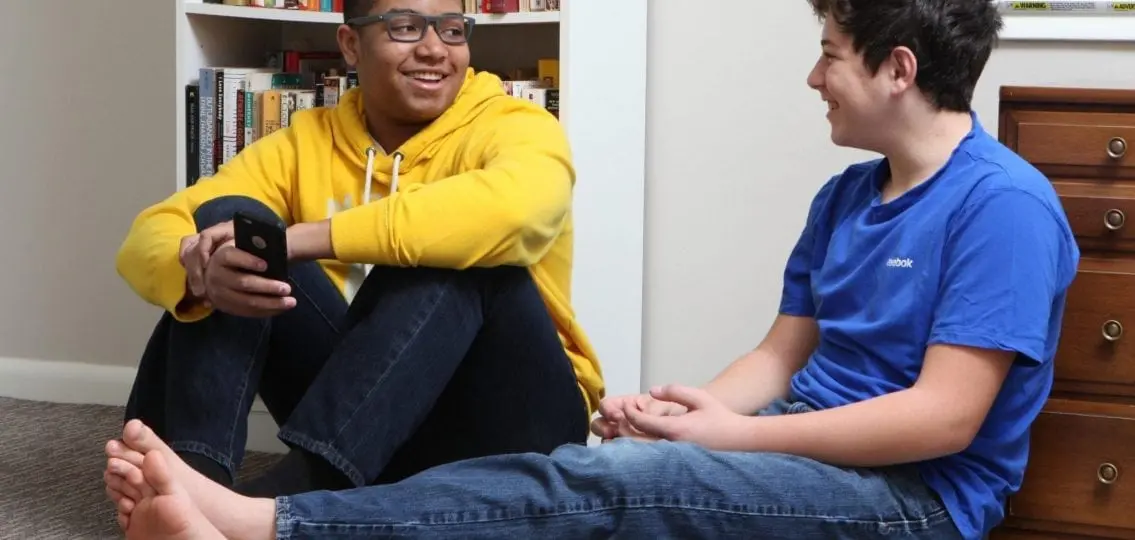In the stressful world of parenting teenagers, requests for teen sleepovers instantly raise a whole series of red flags.

What happens if something goes wrong? How do you know whether the supervising parent is responsible? Is your teenager telling the truth?
These are all legitimate questions that can race through your mind at just the thought of letting your teen spend a night away from home, let along a night at a coed sleepover in high school.
If you allow teen sleepovers, you might even find yourself playing the role of the host parent and wondering what you can do to make sure the night goes smoothly. In either scenario, following the eight key rules below can help put your mind at ease and keep your teenager safe all night long.
8 Tips for Teen Sleepovers:
1. Set strict limits.
Teenagers think they’re all grown up, so it’s important to remind them that they are not yet adults, developmentally or legally. It’s up to you to be setting rules for your teenagers. In other words, if you do not allow coed sleepovers, then that means no coed sleepovers. Whatever your rules are, make sure that you articulate them clearly.
2. Come up with an escape plan.
For all teenagers, resisting peer pressure is exceptionally challenging. So you will want to create an escape plan to make it easier for your kid to leave a teen sleepover the second they feel uncomfortable. You and your teen should come up with an emergency code phrase together. For example, “Mom, I feel sick” can be your code. It is a great excuse to leave without getting too many questions. Make it clear that you will have your phone should your teen need to make an early getaway.
3. Get to know the other parent.
If your child wants to spend a night at a friend’s house, you need to be confident that the supervising parent is up to the task of keeping tabs on every teen on the invite list. Don’t be afraid to pick up the phone and ask some important questions. For instance, “What is your plan for keeping the teenagers safe?” of “Is there anything I can do to help?” Opening the lines of communication with a friendly call is a great way to stay up to date when you can’t be there in person.
4. Treat teen sleepovers as special rewards.
Stressing that going to or having a sleepover is a reward to be earned and not a right will keep your kids on their best behavior.
5. Decide how you feel on the gender question.
For some parents, coed teen sleepovers are no big deal with proper parental supervision. For others, teen sleepovers with both boys and girls are the definition of a parent’s worst nightmare. There’s no right or wrong answer here. If you do decide to host a mixed sleepover or let your teen go to one, make supervision a priority.
| [adrotate banner=”76″] |
6. Forbid teen drinking.
When it comes to teen sleepovers, alcohol is a very real threat. To reduce the risk, lock your liquor cabinet and keep a close eye on all of the kids under your care. While you can’t be there all night, you can usually spot warning signs early in the evening. If you notice strange behavior or smell alcohol, tell the kids that you’re thinking of doing an alcohol check. Just the threat of action can be enough to get them to fess up.
7. Be understanding when the unexpected happens.
Be prepared for disappointing news and stay calm. Your teen’s sleepover may take an unexpected turn. The best plans may still turn into a party with drugs or alcohol. As tempting as it can be to automatically blame the supervising parent, you won’t know what happened until you call. Once you clear up the source of the problem, talk to your child. Make sure the same thing never happens again.

8. Don’t feel bad about saying no to teen sleepovers.
When something feels wrong, go with your instinct. Whether the party is at another house or in your living room, you always have the right to nix the plan if you feel uncomfortable.




